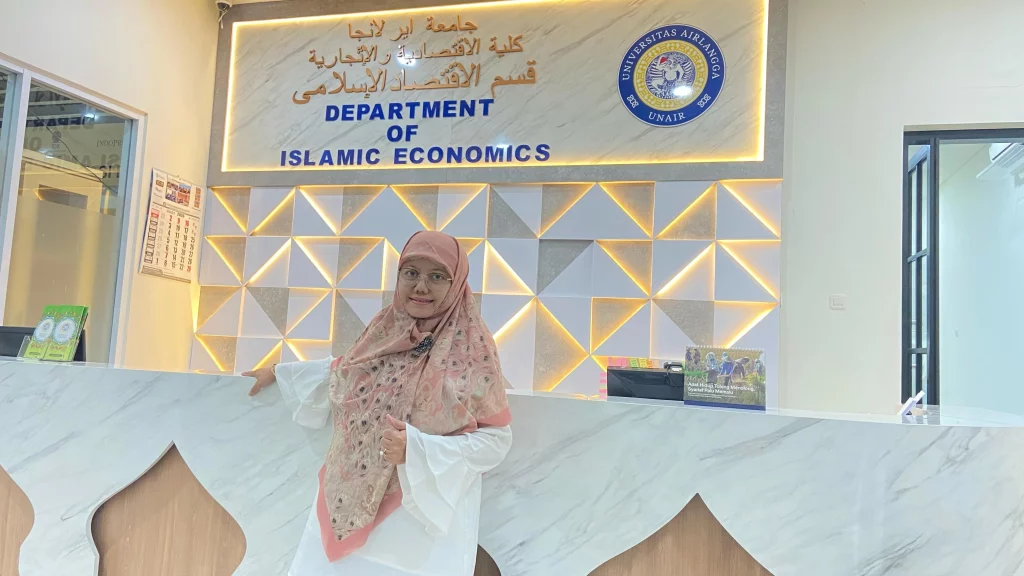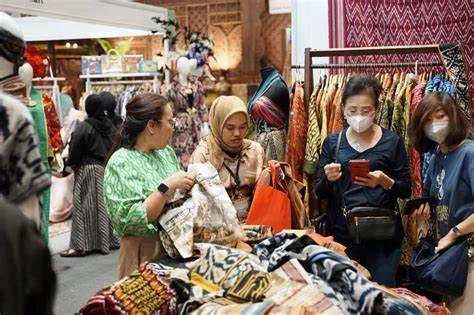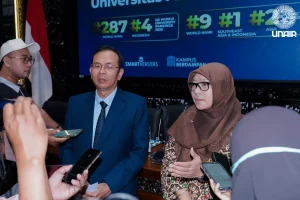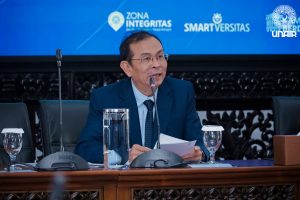UNAIR NEWS – In recent years, Micro, Small, and Medium Enterprises (MSMEs) have often been regarded as the backbone of Indonesia’s economy. However, this perception is now under scrutiny, particularly regarding their ability to generate quality employment and drive national economic growth.
At the CNBC Indonesia Economic Outlook 2025 event, senior economist Raden Pardede stated that MSMEs cannot fully serve as the primary driver of economic growth due to their inability to provide fair wages for their workers. He emphasized the need to strengthen the role of large corporations in generating high-quality job opportunities.
Professor Dr. Sri Herianingrum, S.E., M.Si., an economic expert from the Faculty of Economics and Business (FEB) at Universitas Airlangga (UNAIR), echoed this sentiment. She noted that while MSMEs significantly contribute to the number of business units and workforce absorption, many still struggle to meet minimum wage standards.
“MSMEs indeed play a crucial role in employment and business proliferation. However, many of them still face significant challenges in meeting minimum wage requirements,” she explained.

Challenges in providing fair wages
A key challenge for MSMEs is their narrow profit margins, which hinder their ability to offer competitive wages. This issue has become a focal point in recent economic discussions, especially as many MSME workers continue to receive wages below the standard threshold.
Prof. Herianingrum further explained that although MSMEs demonstrate resilience during economic downturns, they still struggle to meet worker welfare standards. This reality underscores the fact that the MSME sector alone cannot be solely relied upon as the primary engine of economic growth.
“If we aim to foster more sustainable and inclusive economic growth, we must focus on expanding medium and large-scale enterprises capable of providing fair wages and adequate working conditions,” she asserted.
Role of digitalization in strengthening MSMEs
Professor Herianingrum also emphasized that the resilience of MSMEs, particularly in the textile and fashion industries, is largely supported by the availability of locally sourced raw materials. However, digitalization remains a crucial factor in ensuring their sustainability and expansion. She pointed out that many MSME-dominated regions still face challenges in digital transformation due to inadequate internet infrastructure.
“Digital literacy must be prioritized. Without sufficient knowledge, MSME entrepreneurs will struggle to leverage technology for business growth. Additionally, unequal internet access across different regions remains a major challenge that must be addressed urgently,” she concluded.
Author: Rosali Elvira Nurdiansyarani
Editor: Khefti Al Mawalia









